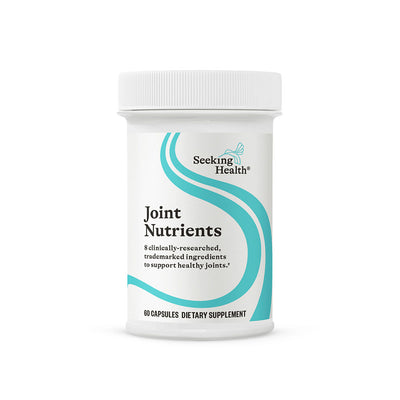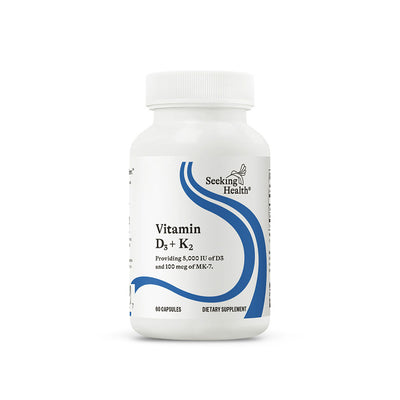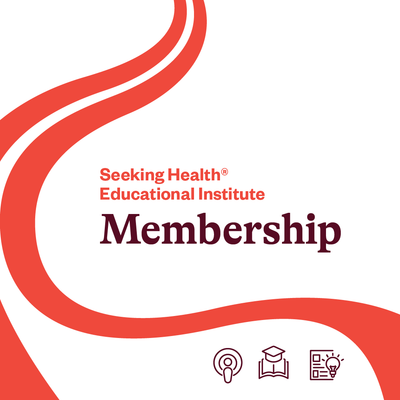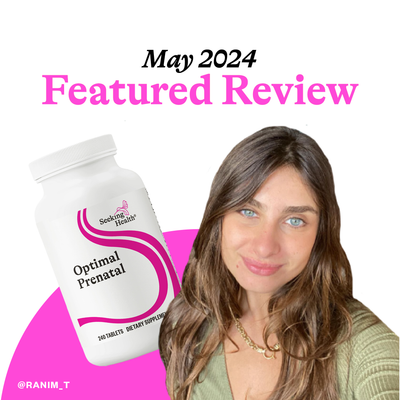Methylated vitamins have gained popularity for supporting your body's healthy nutrient levels. These vitamins, already in their active form, can be especially beneficial if you have difficulty processing regular vitamins. You may have a genetic variation like the MTHFR gene mutation and your body can't process some forms of folate.(1) Methylated vitamins also help support healthy energy levels, mental clarity, and well-being.†
But what about your kid? Are methylated vitamins a good idea? Before you decide, it's essential to understand your kid's specific nutritional needs. This will help you determine if they need methylated vitamins.
Get ready to learn if these unique methylated formulas are okay for your kid. You'll read about the pros and cons, and how you can naturally support your kid's health and well-being. This information will help you determine if methylated vitamins are the right choice for the youngest members of your family.†
What Are the Pros and Cons of Methyl Vitamins For Kids?
You're here for one reason, so we'll cut to the chase: methyl vitamins can benefit your child, especially if they have certain genetic variations. For example, your kid may have an MTHFR gene mutation that makes it hard for their body to use and process folate. One of the main advantages of methylated vitamins is that they are already in their active form, making it easier for your kid's body to absorb and use them.†
But there are also some downsides to methyl vitamins for kids. First, they tend to be more expensive than regular vitamins, which can add up over time. Another concern is the potential for side effects, like headaches and stomach aches, especially if you're not giving your child the correct dosage.
It's also important to remember that not all kids need methyl vitamins. Your's may get the nutrients they need from a balanced diet. You don't want your kid to become overly reliant on supplements and neglect healthy eating habits, thinking it's okay to eat poorly because they can take a vitamin to get the nutrients they need. Building good eating habits when your kid is young will serve them well into adolescence and adulthood.

However, determining whether to give your kid methyl vitamins requires more research than a list of pros and cons. Your kid depends on you to make the right, informed decisions about their health. This means you need to dive deeper into the world of methylated vitamins and kids to really understand why they may or may not be right for your unique kid.
Methylated Vitamins 101: What Are They?

Whether you already take methylated vitamins or you're exploring them for the first time, it helps to understand what they are and how they work. This knowledge will help you determine if methylated vitamins are right for your kid.
Methylated vitamins are a type of vitamin that can be quickly absorbed by your body. Normally, your body has to process regular vitamins into a form you can use. But, your body may need help due to genetic differences, like the MTHFR gene mutation.
Methylated vitamins are already in their ready-to-use form. This makes it easier for you to get the nutrients you need because they are bioavailable. For example, active, bioavailable folate (5-MTHF, or methylfolate) is a form of vitamin B9 that your body can use right away, unlike folic acid.(2) The folic acid found in many supplements and fortified foods is not bioavailable and has to be converted before your body can use it. Some of our bodies aren’t able to do this, so we turn to methylated folate instead.†
These methylated vitamins are designed to support an already healthy condition. They support healthy energy levels, brain function, and well-being. However, it's essential to remember that not everyone needs methylated vitamins. Your kid may be able to get all the nutrients you need from a balanced diet. But if you or your kid does have trouble with regular vitamins, methylated vitamins can be a useful alternative.†
So, in a nutshell, methyl-free vs. methylated vitamins look like this:

So, Are Methylated Multivitamins Better For Kids?
It's hard to say if methylated or methyl-free vitamins are better for your kid. It depends if they have something like the MTHFR gene mutation and difficulty getting the folate they need to support healthy red blood cell production and the healthy function of your nervous, digestive, and immune systems. Taking a methylated multivitamin can more effectively support healthy nutrition so your kid can perform well at home, school, and the soccer field.†
However, methylated multivitamins are not necessary for every kid. Yours may be able to get all the nutrients they need from a well-balanced diet. Their diet should include fruits, vegetables, grains, and proteins.(3) Hopefully, you're setting a good example! Also, methylated vitamins tend to be more expensive than regular ones. They may not be worth the cost if your kid doesn't have a specific need. Monitoring the dosage is also crucial. Taking too many vitamins can cause side effects like headaches and stomach aches.
Before giving your kid methylated multivitamins, talking with their healthcare provider is always best.
How Do You Know If Your Child Needs A Methylated Vitamin?

It's hard to determine if your child needs a methylated vitamin without professional help. But one thing you can do is watch your child's health. Make note of any recurring issues you may notice. Constantly feeling tired, difficulty concentrating, slow growth, and other symptoms may indicate a vitamin deficiency.(4)
Ultimately, talking with your kid's healthcare provider is best. They can run a test for the MTHFR gene mutation in case your kid can't process standard vitamins.(5) With this information, your healthcare provider can recommend whether methylated vitamins are necessary and help you determine the correct dosage.†

More specifically, side effects of folic acid that may indicate a problem with the MTHFR gene include:
- A sour mouth
- Nausea
- Gastrointestinal disturbances
- Loss of appetite
- Confusion
- Irritability
- Restlessness and excitability
- Problems sleeping
- Skin rash
- Itching
- Redness and flushing
- Breathing problems
How Long Do Methylated Vitamins Take to Work?
The time it takes for methylated vitamins to work can vary based on several factors. These include your kid's unique genetic makeup, health, and the specific vitamin being taken.
Your kid's body can absorb and use methylated vitamins fast because they are in the active form. You may begin to notice changes in your kid's energy level, mental clarity, and well-being within a few days to a few weeks. However, it's important to note that these changes are often subtle. It may take longer for some kids, depending on their unique needs and health conditions.†
Consistent use of methylated vitamins, a balanced diet, and a healthy lifestyle can support their effectiveness. While you may see some changes in your child quickly, others may take longer. For example, supporting healthy nutrient levels may take several months of supplementing with methylated vitamins.†
Patience and regular monitoring by a healthcare provider are vital to understanding how well the vitamins work. It's also crucial to avoid giving your kid too many, which can lead to side effects. This emphasizes the importance of following the dosage recommendations provided by a healthcare professional.†

Are Methylated Vitamins Safe For Kids?
Methylated vitamins are likely safe for kids. They are bioavailable, so your kid’s body can use them immediately. As you’ve learned, this can be helpful if your kid has trouble processing regular vitamins.†
However, too much of a good thing can be bad. If your kid takes too many methylated vitamins, they might get headaches, stomach aches, or other side effects. That's why it's always a good idea to start with a lower dose and consult a doctor before increasing it. Remember, your kid's healthcare provider can guide you and ensure your kid's health and safety.
What Are The Side Effects Of Too Many Vitamins?
Taking too many vitamins may pose various health risks for your kid. Even though they need vitamins for growth and development, taking too many can lead to harmful side effects.(6) For example, too much vitamin A can cause nausea, dizziness, and headaches. Similarly, too much vitamin D may lead to weight loss and high calcium levels in the blood. Overloading on iron can result in stomach pains, vomiting, and diarrhea. This is why giving your kid the correct dosage and consulting their healthcare provider for guidance is important.

How Can I Support My Kid's Health Naturally?

Supporting your kid’s health naturally involves a combination of healthy habits. These include good nutrition, regular physical activity, and healthy habits. A balanced diet is a great place to start. Including fruits, vegetables, whole grains, and lean proteins in the menu helps ensure your kids get the nutrients needed to support healthy growth and development.
Making sure your kids stay active playing sports, biking, or even taking family walks together supports a strong, healthy body. Being active outside supports healthy motor development, eyesight, and emotional balance.(7) Getting sleep is also critical. It allows your kid’s body to rest in support of healthy brain development.(8) Also, not enough can be said about good hygiene. Practices like regular hand washing and proper dental care can go far to support wellness.

Seeking Health’s Children's Vitamins and Supplements
Your kid deserves the best nutritional support available. This means supporting healthy diet and lifestyle habits with Seeking Health's children's vitamins and supplements. From growth spurts to brain development, our collection of children's vitamins and supplements is designed to provide holistic support for health and well-being. We offer multivitamins specifically formulated for kids and the same vitamins and nutrients you've come to rely on in support of your own health.†
- Kids’ Multivitamin Chewable is a great-tasting, kid-approved, and sugar-free daily multivitamin for kids one-year-old and up. It contains vitamins and nutrients like folate, iron, zinc, and vitamin D to provide comprehensive nutritional support.†
- Kids’ Multivitamin Chewable MF offers the same great nutritional support but in a methyl-free form for methyl-sensitive kids. It’s a great choice if your kid is also sensitive to methylated nutrients like L-methylfolate and methylcobalamin.†
- Immune Intensive is a liquid supplement designed to support your kid’s healthy immune system, lungs, respiratory system, and a healthy oxidative stress response with a quick swish and swallow as needed.†
- Vitamin D3 + K2 Drops are a quick and easy way for your kid to get the vitamins they need to support a healthy immune system, teeth, and bones. Its olive oil-based delivery system enhances absorption.†
The Bottom Line

So, should kids take methylated vitamins?
Methylated vitamins can offer unique benefits for kids. This is especially true for those with genetic variations that hinder the processing of regular vitamins. Methylated vitamins provide a ready-to-use form of essential nutrients. They can help support healthy energy levels, mental clarity, and overall wellness.†
But, it is crucial to use methylated vitamins with care. Your kid may not need these specialized vitamins. You should also consider their higher cost and the risk of side effects carefully. Schedule a visit with your kid's healthcare provider. They can evaluate specific health needs and guide you in making an informed decision about methylated vitamins.
While methylated vitamins can be a valuable supplement for certain kids, they are not a one-size-fits-all solution. Ensuring a well-balanced diet that includes fruits, vegetables, grains, and protein is essential. Supplements should never replace healthy eating habits. They are designed to do what their name implies and supplement a healthy lifestyle.
Be your kid’s best advocate! By working closely with a healthcare professional, you can find the best approach to support your kid's health and well-being. You'll also be teaching them healthy habits to carry them on life's journeys!
References:
- https://pubmed.ncbi.nlm.nih.gov/26149435/
- https://pubmed.ncbi.nlm.nih.gov/35999905/
- https://www.mayoclinic.org/healthy-lifestyle/nutrition-and-healthy-eating/expert-answers/multivitamins/faq-20058310
- https://pubmed.ncbi.nlm.nih.gov/36479498/
- https://medlineplus.gov/lab-tests/mthfr-mutation-test/
- https://www.mountsinai.org/health-library/poison/multiple-vitamin-overdose
- https://www.healthychildren.org/English/family-life/power-of-play/Pages/playing-outside-why-its-important-for-kids.aspx
- https://pubmed.ncbi.nlm.nih.gov/35914537/
† These statements have not been evaluated by the Food and Drug Administration (FDA). This product is not intended to diagnose, treat, cure, or prevent any disease.












